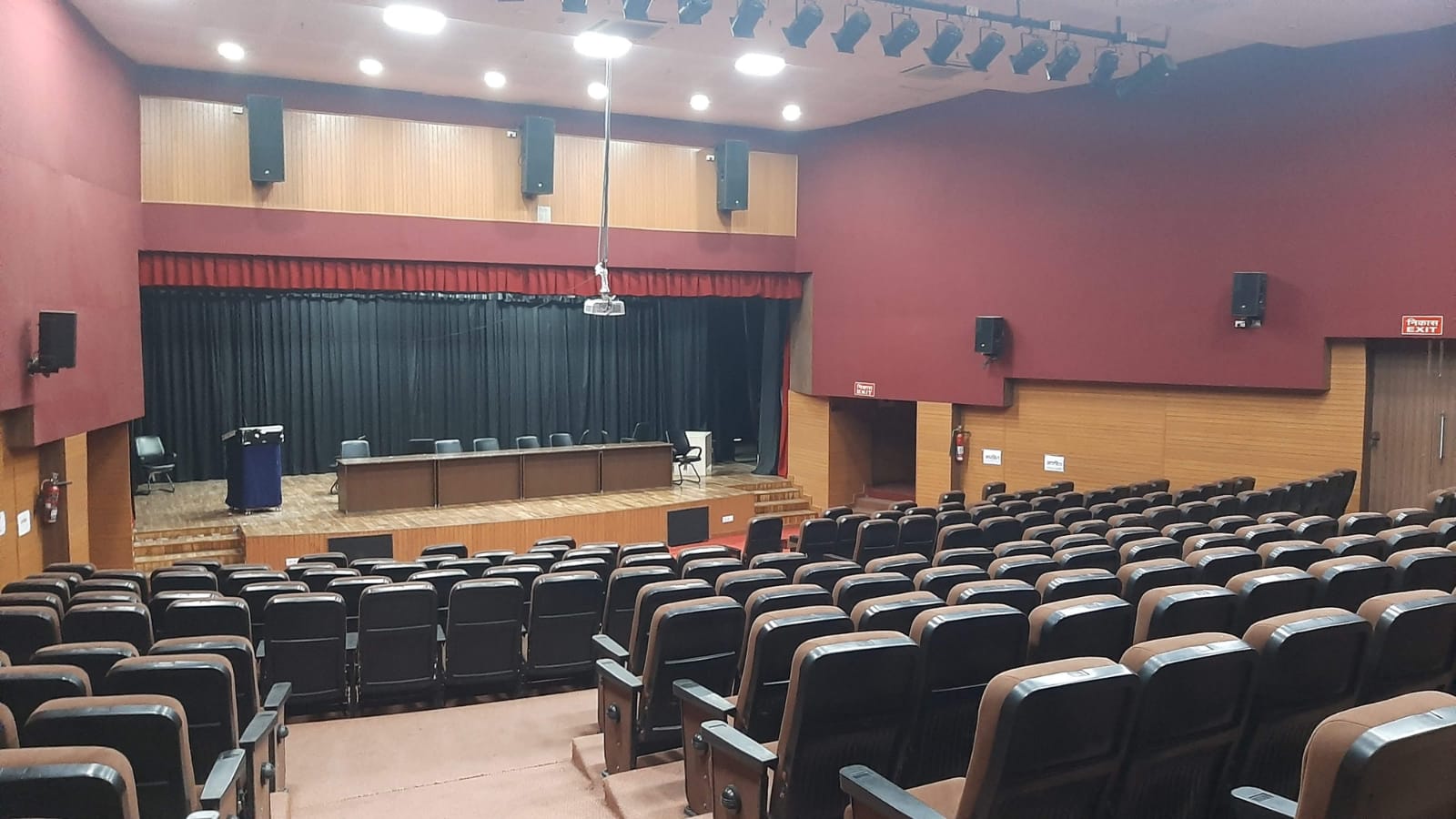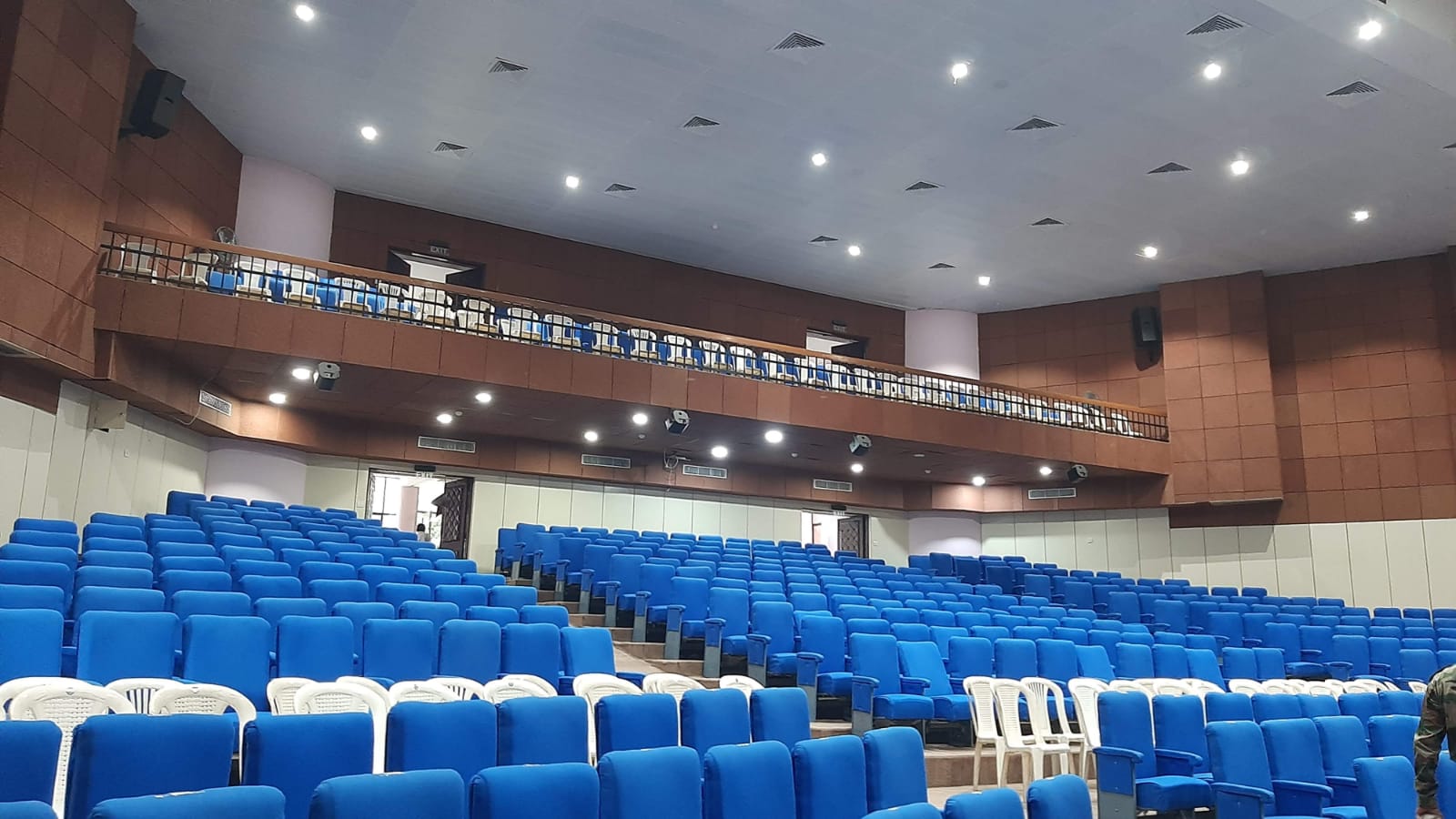Planning and organizing events, whether they are concerts, conferences, seminars, or performances, can be a complex and challenging task. One of the most critical elements in ensuring the success of any event is choosing the right venue, and when it comes to hosting grand and memorable gatherings, an auditorium often proves to be the ideal choice. In this comprehensive guide, we will explore the essential factors and considerations involved in looking for the perfect auditorium for your upcoming events, with a particular focus on D Signature Live.
The Importance of Choosing the Right Auditorium
1 Setting the Tone
- The impact of the venue on the event’s atmosphere
- Reflecting the event’s purpose and theme
2 Technical Requirements
- Acoustics, lighting, and sound systems
- Stage and backstage facilities
3 Audience Capacity
- Matching the venue size to the expected attendance
- Balancing intimacy and grandeur
Understanding D Signature Live-
1 Introduction to D Signature Live
- A premier event space
- Reputation and track record
2 Location and Accessibility
- Convenient access for attendees
- Parking and public transportation options
3 Facilities and Amenities
- State-of-the-art equipment and technology
- Comfortable seating and spacious lobbies
Assessing Event Needs and Objectives-
1 Event Type and Purpose
- Concerts, conferences, seminars, and more
- Tailoring the auditorium to your event’s goals
2 Scheduling and Availability
- Planning ahead and securing your preferred date
- Considering peak seasons and holidays
3 Budget Considerations
- Evaluating costs associated with D Signature Live
- Negotiating and budget optimization
Engaging with D Signature Live-
1 Contacting the Venue
- Finding the right contact person
- Initial inquiries and availability checks
2 Site Visits
- Inspecting the auditorium and its facilities
- Clarifying any doubts or concerns
3 Contract Negotiations
- Reviewing terms and conditions
- Finalizing the agreement and securing the date
Event Promotion and Logistics
1 Marketing and Promotion
- Leveraging D Signature Live reputation
- Creating buzz and anticipation
2 Logistics and Setup
- Coordination with venue staff
- Technical and logistical requirements
3 Ticketing and Seating Arrangements
- Choosing the right ticketing platform
- Seating plans and ticket pricing
On the Day of the Event-
1 Event Execution
- Venue setup and preparation
- Ensuring smooth operations
2 Staff and Volunteers
- Coordinating with D Signature Live team
- Assigning roles and responsibilities
3 Audience Experience
- Comfort, safety, and accessibility
- Creating memorable moments
Post-Event Evaluation and Feedback-
1 Assessing Event Success
- Attendance, feedback, and revenue
- Meeting your event’s objectives
2 Feedback and Improvements
- Gathering input from attendees
- Communicating with D Signature Live for future enhancements

Choosing the right auditorium is paramount in ensuring the success of your upcoming events, and D Signature Live stands as a premier choice for hosting a wide range of gatherings. By carefully assessing your event needs, engaging with the venue, and executing a well-thought-out plan, you can create unforgettable experiences that leave a lasting impression on your audience. The stories of successful events held at D Signature Live serve as a testament to its excellence as a venue, and with the right approach, your event could be the next success story to grace its stage.
Auditoriums are often considered ideal venues for various types of events due to several compelling reasons. Whether you’re planning a conference, concert, lecture, or any large gathering, an auditorium offers unique advantages that make it a popular choice. Here are some key reasons why you might need an auditorium for your event:
- Capacity and Seating: Auditoriums are designed with tiered seating, allowing for excellent visibility for a large audience. They can accommodate a substantial number of attendees, making them suitable for events with hundreds or even thousands of participants.
- Acoustics: Auditoriums are typically designed with acoustics in mind. The sound system, design, and materials used ensure that audio can be heard clearly from any part of the space. This is especially important for concerts, lectures, and presentations where audio quality is crucial.
- Stage and Performance Space: Auditoriums come equipped with stages, which provide a designated area for speakers, performers, or presenters. These stages often have appropriate lighting and sound equipment to enhance the overall experience.
- Professional Atmosphere: Auditoriums convey a sense of professionalism and formality, which can be important for corporate events, academic lectures, and cultural performances. The setting itself can elevate the perceived value of your event.
- Technical Facilities: Many auditoriums are equipped with state-of-the-art technical facilities, including audio-visual equipment, projectors, screens, and lighting systems. This makes it easier to set up and run complex presentations or performances.
- Comfort and Seating Arrangements: Auditoriums typically have comfortable seating arrangements, often with features like padded seats and armrests. This ensures that attendees can sit comfortably for extended periods.
- Accessibility: Auditoriums are often designed to be accessible, with features like ramps, elevators, and designated seating for individuals with disabilities. This makes them inclusive venues for a wide range of audiences.
- Controlled Environment: Auditoriums offer a controlled environment where factors like lighting, temperature, and sound can be managed effectively. This control is especially important for events like theatrical performances and presentations.
- Aesthetic Appeal: Many auditoriums are architecturally stunning, with impressive interiors and design elements. These aesthetics can enhance the overall experience and leave a lasting impression on attendees.
- Safety and Security: Auditoriums typically have security measures in place, including trained staff, emergency exits, and evacuation plans. This helps ensure the safety of attendees during the event.
- Convenience: Auditoriums are often located in central areas of cities or on university campuses, making them easily accessible for attendees. They may also have nearby parking facilities and public transportation options.
- Versatility: Auditoriums are versatile spaces that can accommodate a wide range of events, from lectures and symposiums to concerts and theater productions. This versatility makes them a practical choice for event planners.
In conclusion, the choice of an auditorium for your event depends on your specific needs, the size of your audience, and the type of event you’re organizing. Auditoriums offer a professional, well-equipped, and controlled environment that can enhance the overall experience for both organizers and attendees, making them a popular choice for a wide variety of events.


